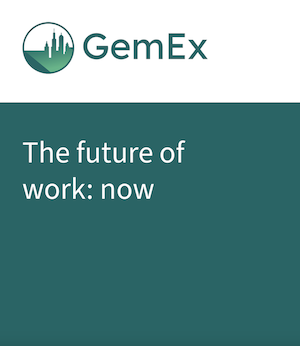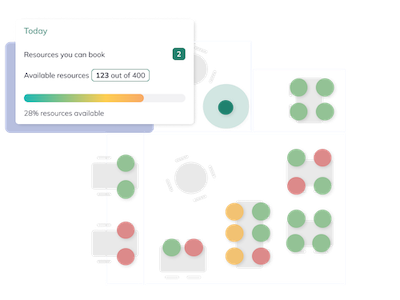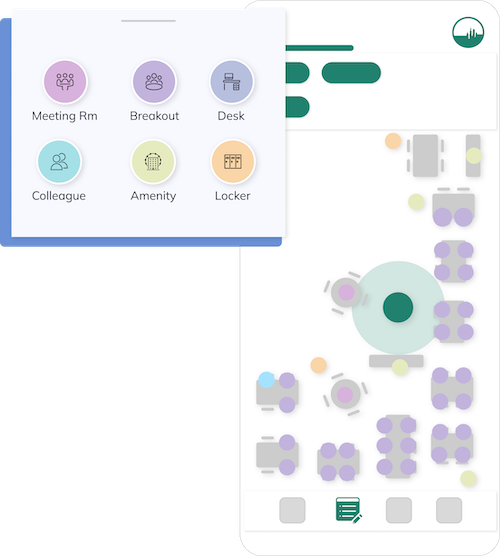Technology is embedded into many aspects of our daily lives, and it won’t be long until digital innovation reinvents the way business is done in all industries. The PropTech industry is seeing a lot more advancements as the global real estate market is expected to grow from $3386.11 billion in 2021 to $3741.06 billion in 2022 at a compound annual growth rate (CAGR) of 10.5%. By 2026, the market will likely reach $5388.87 billion at a CAGR of 9.6%.
From Smart Buildings to Smart Cities, the real estate industry is relying on PropTech solutions to obtain and interpret data for faster and more informed data-based decisions to improve portfolios.
Here’s three unique trends expected to hit PropTech in 2022 and beyond:
1. Bye Bye 3-2-2, Hello 4-3 Workweek
The traditional 9-to-5 working week has transformed into the 3-2-2 schedule over the pandemic. 3-2-2 saw employees work three days in the office, two days remote and two days off. With this new working schedule, employees have greater flexibility, spend less time commuting and can have a work life balance. This leads to improvements in job satisfaction and productivity.
However, recently more and more companies globally are considering a four-day work week with a three-day weekend. Statistics from ZipRecruiter show that in 2020, the share of job postings offering four-day work weeks was 69 for every 10,000 job postings. Microsoft Japan have already implemented a four-day work week structure at the end of their trial. In conclusion, they found a happier workforce and a 40% increase in productivity whilst, Unilever New Zealand announced in 2020 a yearlong four-day week trial.
With the Great Resignation of 2021, retaining and attracting talent is incredibly essential for companies. Employees are “shopping” around for jobs which offer a better work life balance and a culture of wellbeing. No longer will employees stand for a toxic workplace culture which could lead to employee burnout. (Read our 4 Antidotes to Your Employee Burnout Problem blog). This shorter workweek could be what companies need to incentivise employees and is why a UK four-day work week pilot will be launched in June 2022. 30 companies are taking part as UK Fintech company Atom Bank makes the 4-3 the new normal.
Just as the 9-to-5 work week is a thing of the past, slowly the 3-2-2 work week will evolve into a 4-3 work week. as companies globally begin adopting new ways to retain talent and lower costs without layoffs in 2022 and beyond.
2. Blockchain Is and Will Continue to Power PropTech
Blockchain is a well known but a newer term to the PropTech and Real Estate industry. This tech collates information into “blocks” which link onto other blocks to create a chain – “blockchain”. A digitalised distributed ledger shares information but cannot be altered or forged, making the data more secure.
World Economic Forum found that over half of the respondents believe in 2025, 10% of global GDP information will be stored on blockchain technology.
Most know blockchain is the technology driving Bitcoin. However, blockchain is evolving into a huge player in the real estate industry, used to purchase, sell, and lease properties.
IoT, big data and artificial intelligence power Smart Buildings, but blockchain is useful for constructing smart contracts. Contracts that are electronic and automated give participants immediate awareness of outcomes and secure document storage. Processes and legalities will see a rapid acceleration as users have access to all the data stored in a blockchain. This will save time on obtaining any property data and lowering dependency on real estate brokers or any intervention of third parties.
3. Rise of Sustainability and Net Zero Carbon Emissions Technology
The climate crisis is a crucial hot topic on the table, especially with the Glasgow COP26 summit capturing headlines globally. More companies than ever are looking into making vital changes. One of those changes is placing importance on ESG (environmental, social, and corporate governance). CBRS’S 2021 Global Investor Intentions survey reports that 60% have already adopted ESG criteria as part of their investment strategy. This will only continue to grow as more organisations adopt the ESG criteria, particularly investment in real estate assets.
According to a World Business Council for Sustainable Development report, the built environment contributes 39% of global carbon emissions. Therefore, industries would need to reduce emissions by 50% by 2030 to meet the 2050 net-zero target.
Implementation of PropTech technology will play a key role in providing opportunities for buildings to become more energy efficient and for organisations to collect wider ESG data. For example, IoT sensors can track carbon footprint, water usage and indoor air quality.
Augmented buildings with IoT technology will help organisations focus on ESG. Imagine opening elevator doors without touching any buttons and motion sensor taps. Smart Buildings enhance a touchless tenant experience, helping organisations to focus on social performance. Smart Buildings also have an integrated Building Management Systems (BMS) to monitor and analyse real-time and historical data. This aids building owners, facilities managers, and landlords to optimise energy consumption and emissions and reduce costs.
Workplace sensors provide data on building occupancy, space usage, smart cleaning and smart building management. This can help facility teams plan in advance, analyse employee behaviour, and create a smart office. In turn this promotes productivity, collaboration and reduce energy consumption thus, lowering emissions and utility bills.
Preparing For 2022 and Beyond
If 2021 was the year of recovery, 2022 is the year of growth. Whilst change and growth will not happen overnight, it will still happen. Organisations in PropTech and the Real Estate industry must prepare to adopt any future trends.
Focusing on tenant wellbeing is a way for firms to improve their social responsibility. Solutions like GemEx Engine® and Luna can aid landlords and corporate tenants in tracking supply and demand for space.
Spica’s platform GemEx Engine® and app Luna can aid facility managers and building owners in monitoring and tracking supply relative to the demand for space. Our Workspace solution combines desk, room and floor occupancy data paired with real-time and historical data. This can be simplified with our heatmaps feature which provides an overview at-a-glance to help your organisation make well-informed decisions on space utilisation.
Use Luna, our workplace app to integrate with Building Access Control for touchless access to office buildings and smart lockers. Gain real-time data on occupant density and monitor and adjust indoor air quality such as humidity and temperature through the app. This empowers employees to make informed decisions on visiting the workplace or working remotely.
Spica Tech’s solutions can help organisations reduce underutilised spaces, improve portfolio performance, and adjust employee-desk ratios. This optimises building efficiency overall thus, reducing costs and being on target to achieve their ESG objectives.
Book a demo to see how we can help your organisation prepare for the future. Our Digital Workplace Consultants will be happy to answer any questions you have.











